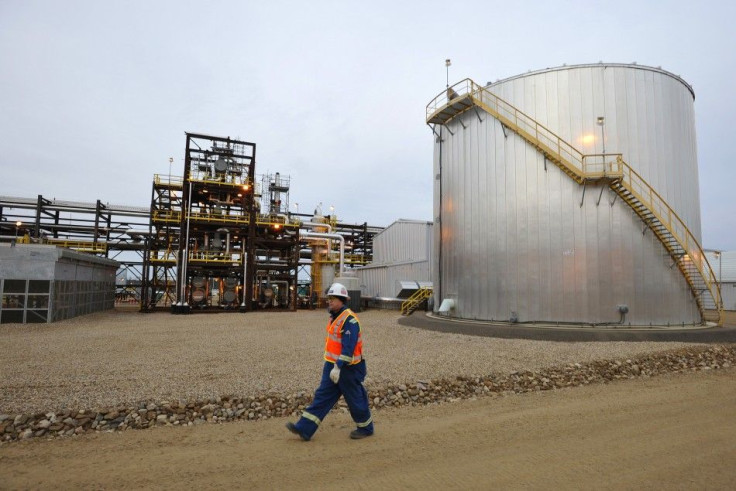Are These The Richest Strikers On The Planet? Norway Oil Shutdown Looms Amid Worker Dispute
ANALYSIS

Rikard Særsten earns up to $140,000 a year. He has no debts (his company paid the college bills), he has already risen to the rank of supervisor, and, in his own words, he has great career prospects.
Oh, and, by the way, he is only 27.
Despite what you may think, Særsten is not a stockbroker, nor a Google wiz kid or even a budding sports pro. He is a Norwegian oil rig worker.
It's good to have an income and get your education paid for, he recently told Norwegian newspaper Aftenbladet.
Earlier this year, the paper profiled another oil worker, 29-year-old Olaug Line, who has just bought her second home in three years (helped in no small part by an interest-free loan from her employer, Eni) while enjoying near interest-free car and consumer goods loans of up to $60,000.
But that's not all. She could also (among many other equally astonishing benefits) take advantage of the company's Norwegian countryside cabins, on offer to staff, or even take time out for sponsored further education in Norway or abroad, where she would be given a property in which to live, pocket money and a travel expense allowance of around $50,000.
It was pretty good, Olaug said, discussing her switch from an audit job in Oslo to her current employer, Italian oil giant Eni.
And, according to a recent survey, Særsten and Line are not alone.
Business publication Dagens Næringsliv found that the typical Norwegian oil worker currently earns around $175,000, more than double the world average.
You'd think then that the current strike action by Norwegian offshore workers -- which now looks set to halt production in the Western Hemisphere's largest producer -- would be over something serious such as a drastic wage cut, pension freeze or wave of demoralizing layoffs.
But instead, in an industry where employees put in an average 16 weeks of work a year, the roughnecks are downing tools over the right to retire at the age of 62 instead of 65.
Three weeks into the strike, some 13 percent of Norway's oil production and 4 percent of its gas output has already been choked off, according to Reuters.
And with the government failing to step in to resolve the dispute -- as it has done three times since 2007 -- the likes of Statoil, BP and Eni were preparing to instigate a full closure of output at midnight on Monday, cutting off more than 2 million barrels of oil, natural gas liquids and condensate per day.
But minutes before the deadline, the Norwegian government stepped in Monday night, ordering the offshore workers back to work and sending the dispute to binding arbitration, The New York Times reported. The oil industry had warned that it would begin the lockout of offshore oil workers at 12:01 a.m. Norway time on Tuesday.
The dispute has already seen the price of Brent crude rise $1 to breach the $99 per barrel threshold.
Oil company employees have an average annual income of 1 million Norwegian kroner and a retirement age of 65, Jan Hodneland, chief negotiator at the Norwegian Oil Industry Association told the BBC.
This already makes them Norway's pension winners. We're living longer, so we've also got to work longer, he added.
The employers must take responsibility for this conflict, union chiefs Hilde-Marit Rysst and Leif Sande replied in a joint statement, according to Bloomberg.
The most appropriate and fair outcome is that the oil companies must accept the consequences of their own stupidity when they announce a full lockout.
The phrase you don't know how lucky you are was never more appropriate.
© Copyright IBTimes 2024. All rights reserved.











